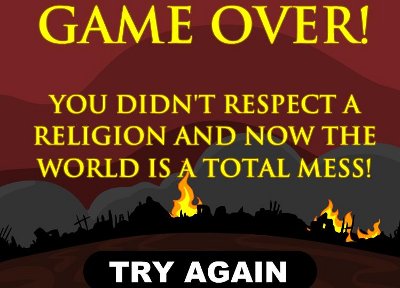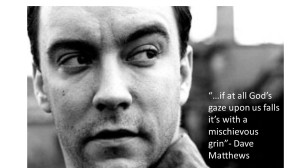
First, let me begin by saying happy New Year to both of you reading this (hi, mom). Let’s just all agree that 2021 was the worst and never speak of it again outside of a therapist’s office. Deal? Deal.
It’s been a while since I wrote anything for this blog but since I’ve finally had some downtime over the holiday break, I thought now would be a good time to jump back in. In keeping with every parent/teacher evaluation I ever received in grades 1-12, though, I procrastinated until the last day of my holiday break to actually write anything. In my defense, The Witcher season 2 just came out on Netflix, so I’ve been preoccupied. Nudity, fight scenes, monsters, Henry Cavill talking like Batman while shirtless in a hot tub.. It’s got everything. Stop reading for f**k sake and go watch.
Still here? Come on, why? DID YOU NOT HEAR ME SAY HENRY CAVILL SHIRTLESS IN A HOT TUB??
Really? You’re still reading this? Alright, weirdo… this is on you. Don’t say I didn’t give you an out.
The prompt for this post came from my long-time friend Blake, who asked me what my thoughts were on the famous philosopher and cognitive scientist Dan Dennett’s argument for an evolutionary/naturalistic origin for religion. Dennett’s case is laid out in his now famous (infamous?) 2006 book Breaking the Spell: Religion as a Natural Phenomenon. Dennett, for those who don’t know him, is considered to be the most mild-mannered of the so-called “Four Horsemen” of the New Atheist movement, with the other three being Richard Dawkins, Sam Harris and the late Christopher Hitchens. Some other time I’ll write about those three and how much they annoy me, but for now let’s stay on topic.
I first read “Breaking the Spell” many years ago when I was just starting to come to terms with my own atheism. It was a long weird road to get there, and I was excitedly reading all the new literature on the subject I could get my hands on. Because it’s been many years, though, I must concede that my recollection of the book is quite vague at this point. I watched several interviews with Dennett to refresh my memory, which isn’t the same as re-reading the book but it will have to suffice.
Dennett’s primary arguments seem to be that:
- Religious belief is the product of biological predispositions innate to human beings
- Religions themselves display evolutionary behaviors in keeping with the meme theory of both individual and generational transfer of culture and knowledge.
- Because religion is a natural phenomenon, it should be studied using a critical scientific/historical methodology.
Because I want this blog to be accessible to all without any prerequisite reading, I’ll briefly explain these three points. Excited? You shouldn’t be. You’re literally choosing this over watching monsters fight Henry Cavill… weirdo.
“Religious belief is the product of biological predispositions innate to human beings”
The primary argument here asserts that what humans are inherently gifted at is pattern recognition and establishing causal relationships between things we observe. Evolution did not bless humans with wings, claws or top end sprint speed, but instead what we inherited was a powerful brain. We may not be able to outrun a cheetah or outswim a gator, but after witnessing 1 or 2 gazelles get dragged into the water while trying to drink from a lake, we are very quick to recognize that a new strategy is needed for quenching our thirst.
Dennet’s argument, essentially, is that this ability to recognize patterns and ascribe cause to them can also backfire. Imagine, for example, that you are standing alone in the desert. There is not a person, animal or anything other than sand for as far as your eyes can see. Suddenly, though, a rock falls out of the sky and hits you right in the head. A meteorite maybe. The human tendency to look for patterns and ascribe cause might lead you to assume that the odds of a single piece of random falling space debris hitting you in the head when there are hundreds of square miles of sand in every direction are so low that this must have been an intentional act. With no individual around to have done this, though, it must have been an intentional act by some unseen force. Human minds, so the argument goes, are ill-equipped to deal with randomness because our evolutionary gift is seeing through randomness and recognizing patterns in order to avoid making the same dangerous mistakes over and over, thus increasing the likelihood of the survival of ourselves and our species.
This initial misattribution of something random as something intentional, then, may lead to the formation of what Dennett refers to as proto-religious belief. The human, with a painful lump now growing on their head, begins evaluating. “What part of the desert was I standing in when that rock fell out of the sky and hit me?” “Maybe there is some force that does not want me on this particular sand dune”. “Maybe this part of the desert is sacred/evil/special/forbidden/etc.”
So a belief begins…
Religions themselves display evolutionary behaviors in keeping with the meme theory of generational transfer of culture and knowledge.
This portion of Dennett’s argument draws on the work of one his fellow “4 horsemen,” Richard Dawkins. in his 1976 Book The Selfish Gene, Dawkins proposed that knowledge or cultural information can be passed on from person to person in the form of a meme (a meme is “unit of culture” – not just that scary smirking girl standing in front of the burning house). Using an analogy to Charles Darwin’s Theory of Evolution by Natural Selection, Dawkins proposed that information or culture can be passed from one person to another, or from one generation to another, adapting over time for circumstance/relevance or via random alteration, and that that “meme” may take on something of a life of its own.
Going back to our lumpy headed human and their rock in the desert, the person who was struck by the rock may go back to their significant other and tell them about what happened. They may then elaborate and exposing how they think that this is a sign that they should avoid that area of the desert. The couple passes this information on to their children, who grow up avoiding this area. This information gets passed down a few more generations, but at some point one generation of descendants decides that the original person who was struck by the rock must have been special for this to have happened to them, therefore they build a stone marker in the desert in lumpy’s honor to commemorate the rock in the head event. A few more generations pass and lumpy is now seen as having received a message directly from the god(s) and is revered as somehow a semi-divine figure themself, with people bringing random stones to leave on the marker in the desert created in their honor, and worshiping this marker as a kind of sacred altar.
This is obviously a made up scenario, but it is a quick example of how a single random event, interpreted as intentional, may be passed on and evolve to become a kind of proto-religion.
Because religion is a natural phenomenon, it must be studied using a critical scientific/historical toolset
This does not need much explanation. This is the “spell” Dennett os referring to when he discusses “Breaking the Spell.” He argues that we need to stop handling religion and religious belief with kid’s gloves, and start scrutinizing it and studying it as we do any other non-sacred human phenomenon. If religion is a natural phenomenon, Dennett argues, let’s study it as one and start imposing standards of scientific/historical research methodology onto these studies instead of treating religion as a topic of adoration that is beyond the scope of critical evaluation.
So, I hope that helps clarify Dennet’s arguments a bit, now my thoughts.
For the most part I agree with Dennett – particularly the straw man version of his argument I have created 10 years after reading his book – though I am not really sure where that gets us. Any religion, even if it were true, is necessarily a natural phenomenon because it is something that is carried out by humans in the natural world. So saying that religion is a natural phenomenon doesn’t seem to me to be a particularly groundbreaking claim. In fact, I would argue that religious and non-religious people alike have understood religion this way for centuries. Very few people treat Roman Mythology with anything resembling adoration when studying it, and humans have recognized for centuries that something resembling religious belief seems to be a ubiquitous trait in human history. Humans have recorded, collected and compiled thousands of religious ideologies and beliefs into wall paintings, oral traditions, religious texts and later text books and databases over thousands of years. The trick isn’t in convincing people to study religion as a natural phenomenon, most people do that, but rather the trick is in convincing people to study THEIR religion as a natural phenomenon. This appears to be Dennett’s actual goal, and in that I think he falls short.
There are many problems with Dennet’s effort, but I’ll discuss just a couple
Intellectual bludgeoning as a tool for changing someone’s mind
This is a problem that has been thrown into sharp relief during this Covid era. Dennett and the “Four Horsemen” all represented a kind of new era of atheism that sought to assert itself as an intellectually rooted movement away from superstition, that sought nothing more than objective reality and a step away from the evils done in the name of religion in the past. What we have seen, though (and what we should have known from the past) is that if someone is firmly entrenched in any belief (whether true or not), there is no degree of linguistic prowess that can be leveraged, no amount of statistics brought to bear and no syllogism perfectly crafted enough to really shake people from their belief. We see this with religious belief, but we also see it in the reluctance of some academics to entertain theories antithetical to their published positions. Pride is a beast. As much as we like to think that we are rational beings with an emotional side, the truth is that we are emotional beings with a rational side. For the vast majority of people who have either freely left or joined a faith tradition, it was a connection with another person or a feeling within themselves that served as the catalyst for that change, not a single argument or newly learned fact.
Now, this is not to say that I think discussions about the intellectual moorings of someone’s predispositions are useless. I think that it is very much for the benefit of all that we learn to have open discussions about our ideological predispositions and biases, and indeed that would at first glance seem to be what Dennett is calling for himself, but I think that this is something of a trojan horse for Dennett and the other “Four Horsemen.”
The issue is this. In most basic terms, if you have one person with a religious background and one person of a scientific background and you bring them together for what you know will be a contentious discussion, it is a hard sell to say to the religious person, “since it is your position that is in question, we will be having this debate using the rules and biases of my position as our ground truth.” That is just a non-starter. Now, I can hear all of you out there (who am I kidding… nobody has read this far) with a scientific background saying, “but wait, it is our discipline, our methodology that is designed to understand the material world around us, and that is all that we can collectively agree that we share, so these should be the ground rules!” I agree. But that’s the problem, isn’t it? I agree with you because I agree with your underlying predispositions. Simply put, I agree with you because I already agreed with you. I’m not the one someone like Dennett is trying to persuade, though counterintuitively I do appear to be his target audience.
These tough conversations, if they are ever productive, must start from a place of willingness to engage, mutual respect and an honest recognition of the biases that everyone is bringing to the table. At least in my experience. Thus 446 pages of telling someone their beliefs are both likely wrong and also that they are forgiven for believing them because it’s just in their genes so they just couldn’t help it probably isn’t a great place to start.
Many religions are rooted in historical claims
This is a problem very closely related to the previous, but not exactly the same. Dennett talks about the memetic transmission of beliefs from person to person and generation to generation in a way that, frankly, makes sense. It’s compelling, and I think likely correct. The problem is that many of the world’s largest religions are rooted in actual historical claims about actual historical people and actual historical events, albeit miracles, not just stories in a vacuum. Dennett, drawing on David Hume who is one of his intellectual heroes, precludes the study of miracles from any legitimate study of science/history because they would necessarily require a suspension of the natural order to take place. This again creates a tension between methodologies.
To highlight this, take Christianity, which is where my personal experience and the majority of my studies lie. Christianity is based on the belief that Jesus Christ, an actual historical figure, was crucified by by Pontius Pilate, another actual historical figure, and three days later his tomb was found empty, an actual historical claim. Now, there are two thousand years worth of additional layers to these stories and their supporting text, but at its core Christianity is rooted in purported historical events and miracle claims. Again, here is the rub. The “proof” of (some of) Christianity’s claims would be in the resurrected Christ, but according to Dennett’s own methodology, a resurrection would be a miracle and would therefore be outside of the purview of scientific or historical methodology.
Once more, I agree with Dennett. I think that Dennett and Hume are justified in the preclusion of miracle claims from proper historical and scientific methodology, after all what good is studying the natural order if it can suddenly change without warning or without leaving a trace, but once again I agree because I already agreed, so this gets us nowhere. While scientists and atheists have for years been lamenting that religious belief seems to evolve to intentionally evade scientific inquiry, I think that many religious people are equally frustrated that scientific inquiry seems to have similarly evolved to preclude consideration of religious claims.
In summary, if Dennett calls for religion and religious belief to be studied using scientific/historical research methodology, but then advocates a prima facie preclusion of the investigation of religious truth claims, how is this going to be interpreted by any religious person as anything more than intellectual gatekeeping?
Conclusion
Broadly, my thoughts about Breaking the Spell is that most of what people (not Dennett) seem to have interpreted as a paradigm shift in terms of the study of religion and its origins from Dennett’s book wasn’t actually new. That being said, in typical Dennett fashion he presented it in a more accessible and intriguing way than other cognitive scientists today seem capable of. The conversation that Dennett started may be the most enduring legacy of the book, but as I detailed above I’m not at all sure that the conversations are taking place within the walls of the institutions Dennett wishes they were taking place in. I think Dennett is likely right about the underlying genetic and cognitive traits that make humans so prone to religious belief. I think that religious belief is a natural phenomenon. I think that it should be studied critically, in fact I’ve done that myself. I also think that religion being acknowledged as a natural phenomenon does nothing to address the truth of any religious claim. But at the end of the day, and at the risk of falsely ascribing intention myself, I am quite comfortable saying that I think Dennett’s real goal with this book was to lay the groundwork for a lessening of religious influence in this world, and if that actually was his goal I think he likely missed the mark.
Now get out of here and go watch The Witcher, I need more of this and if we don’t get a third season because you were too busy reading my yammerings I’m holding you personally responsible.









